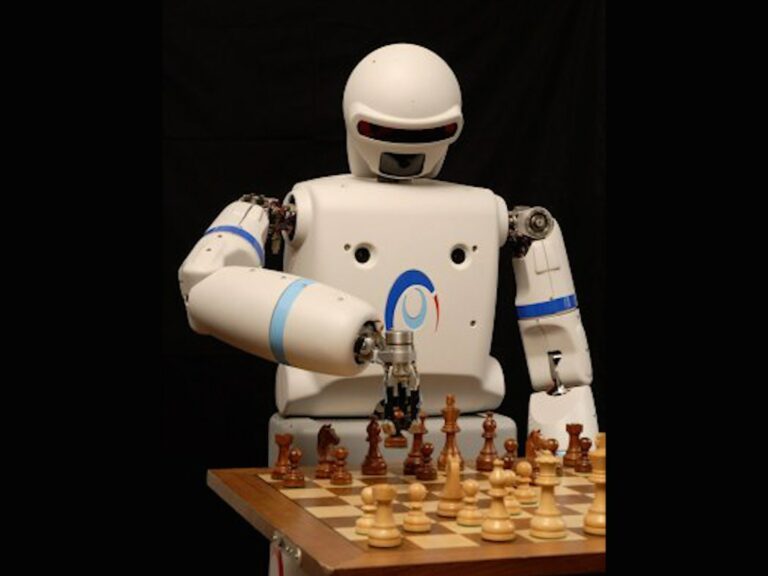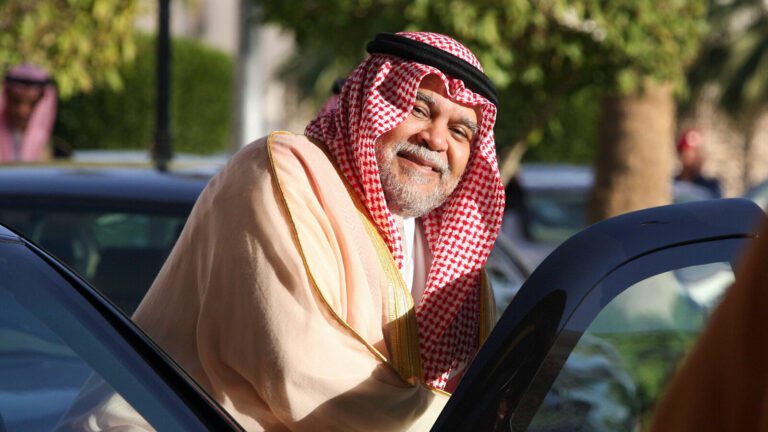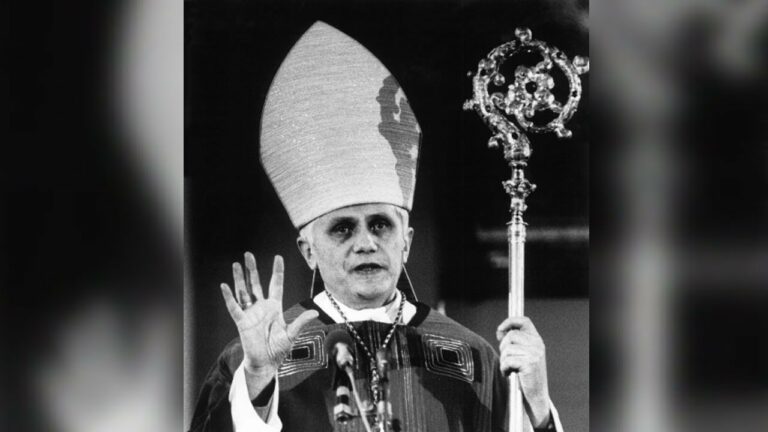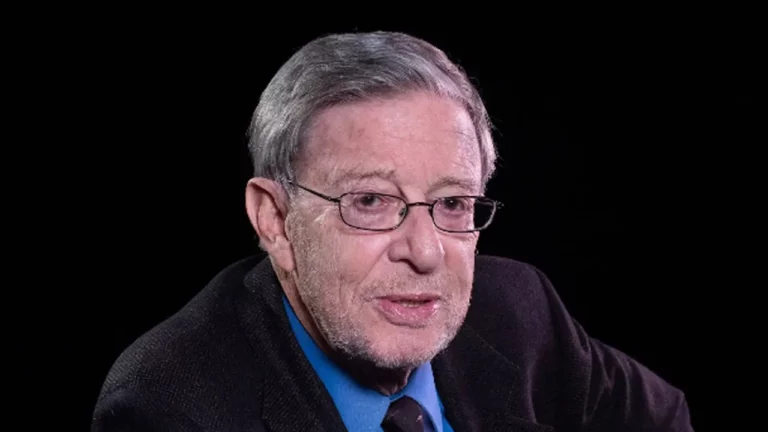Matthew Fox, a former Catholic priest and theologian talks about the ways conservatives and progressives claim the Catholic religion, and how the secular left ignores religion at its own peril. This is an episode of Reality Asserts Itself, produced August 22, 2019.
STORY TRANSCRIPT
PAUL JAY: Welcome back to Reality Asserts Itself. I’m Paul Jay.
We’re continuing our discussion with former Catholic priest and now Episcopal priest, Matthew Fox. Thanks for joining us again.
MATTHEW FOX: Thank you, Paul.
PAUL JAY: If you’ve been watching, then you really should go back to part one to understand where we’re at. Matthew was a Catholic priest who got in the cross hairs of the inquisition led by Cardinal Ratzinger and was, first of all, silenced and then asked to leave the Dominican order–more or less turfed–and continued to speak out. And here he is, speaking out. Talk a little bit about Cardinal Burke and his fight with Francis and what that represents.
MATTHEW FOX: Yes. It is an important fight because it does show that Francis had some steel in him, the way he took on Cardinal Burke. And Cardinal Burke was Cardinal of St. Louis for years, and before that, a Bishop in Wisconsin. I’ve met some of his former priests who shudder when they talk about him. He was a vigorous dictator, autocrat, even in Wisconsin before he was up to a very public level and became a Cardinal in St. Louis. But he’s extremely right wing about everything; any subject at all from homosexuality, to women, to church politics. He will always be to the far right of almost everybody.
And Pope Francis took him on. He fired him from a couple positions, and he exiled him to Guam, I think it was. It was some island out there. He said, “Go do some Canon Law exploration out there or something.” So there’s been this ongoing fight between Pope Francis and Cardinal Burke. And Cardinal Burke was the lightning rod for the right wing Cardinals that gather in Rome on a regular basis because he was elevated to Rome under the previous popes and given a very responsible position, kind of like head of the Supreme Court, head of the judiciary, if you will, in the Vatican. So he carried a lot of weight, but he’s definitely been demoted by this pope.
PAUL JAY: He was involved in a letter that I think was sent–
MATTHEW FOX: That’s right.
PAUL JAY: Kind of denouncing the Pope’s teachings on the family.
MATTHEW FOX: That’s right. He hinted that the Pope was being heretical because he was beginning to open up questions about divorced Catholics being able to have communion and so forth, and even bringing up the subject of homosexuality. So he led this cabal, but I don’t think that he’s succeeded very well. I think that Pope Francis has kind of checkmated him quite effectively.
PAUL JAY: So just sort of as a final question: We’ve talked in the past about how progressive media or even politics doesn’t do very well talking to people of faith. How do you see that, and what should be done about it?
MATTHEW FOX: Well, I think what’s clear is that first of all, the American media is so ignorant about religion. When I go to Europe and I get interviewed by a German journalist or an Italian journalist about my books, these people have degrees in theology, these journalists. They can talk about what’s unique about my ideas, and special, and so forth, and it also has a tradition to it. But in America, you just don’t find this in journalists. I don’t know if I’ve ever been interviewed by someone in America who has a degree in theology as such and could follow the religious tradition to ask really good questions. I think that’s part of the problem.
Then, the right wing comes along, and it’s so loud and it’s so rich. They just completely take over. So when you hear Christianity in the general public today, it means evangelical Christianity to most people. They measure everything by that. It’s a pity, because the great social movements of our country have often been birthed within a religious context; for example, of course, the abolitionist movement. There were a lot of churches, there were a lot of synagogues who rose up against slavery. When it comes to the unions, of course, the Catholic church deserves a great deal of credit for that, because, of course, a lot of the union members in the late 19th century and early 20th century were Catholics from Europe. And Pope Leo the 13th wrote a very important encyclical about unions and about gathering the energy of the worker to speak for themselves and so forth. Of course, Pope Leo the 13th was not unfamiliar with Marx and the other movements going on in Europe. You can go through different movements. Of course, the civil rights movement literally came out of the church, the black church. King was a minister, after all.
Again, left secular, left politics in America wants to… What? I don’t know what they think they’re doing, leaving this out of the equation. The church has often stood with the poor. Dorothy Day, she was a communist when she became pregnant by her boyfriend, they weren’t married. She was an atheist, but she said when she became pregnant, she had to thank someone. She was so excited about bringing life into the world. And she became a Catholic, but a radical Catholic, so the Catholic worker movement from which the Berrigans came. And Thomas Merton was very involved in all that. The very left Catholic movement, that comes from Dorothy Day’s movement. A lot of the churches were involved in the antiwar movement in the 60s and so forth, and of course the environmental movement.
And the Pope’s encyclical is a major work, I think, from a religious value perspective on this terrible crisis we face. So it’s not good politics for the left to try to secularize all this. To me, politics it about getting as many allies as you can. Why wouldn’t you want the believers as well as the nonbelievers, as well as those who have one foot in and one foot out? Why not make the tent as big as possible and use as many resources as you can instead of some kind of new kind of secular orthodoxy and saying, “Well, we atheists are going to carry the flag alone.” Well, that’s not a very big number of people. So I think that there’s something amiss in a lot of left thinking. I think a lot of it is kind of cynical.
I recently had an hour dialogue on this program called Climate One. It’s been going for ten years and is here out of Commonwealth Group, here in San Francisco. The fellow who runs it… A really interesting guy. He’d been running it for 10 years. He said he’s had all kinds of people on talking about climate change; Al Gore, Paul Hawkins, all these people. But he said he’s never had a spiritual person to talk to. He said, “I think that’s what’s missing. That’s what we’re missing, so I’m going to have you on there,” he said.
Then he put me in dialogue with a fellow named Roy Scranton, who wrote a book, “We Are Doomed. What’s Next?” Roy has written for New York Review of Books, and his books have become bestsellers about different things. He’s an Iraqi war veteran, he’s written about war. And this book, which is about war and climate change, is very strong. And the title, I told him–I kind of criticized him. I said, “You have to be careful of selling despair.” I said, “Aquinas said that teaching despair is the worst thing a human being can do.” I said, “A lot of people are teaching despair today around the climate change. And we have to be careful of that because what we need is workers. We need people who will roll up their sleeves and go to work, do the inner work and the work that needs to be done to change all this.” He really kind of listened to me. We’re still in dialogue since that exchange.
My point is that the left has to open up. A lot of people in the left who are secular, if you will, they have not addressed what I would call their wounded religious child. A lot of the left that may have been Catholic, that may have been Jewish in their faith as children or something have been wounded by religion. A lot of people are wounded by religion. But if you’re going to be smart, you’re going to examine that. I’ll tell you, years ago I had a student in my program. And she came to me in October and she said, “I’m so frustrated. I thought this would be the most creative year of my life and I’m blocked. I can’t create anything.” I said, “Well, tell me a little about your life.” It turned out she was raised evangelical Baptist. She quit it all at 14 and went into the world. She became a feminist. She was a therapist and everything.
I said, “Go back and write me a paper on what was good about being fundamentalist.” She said, “You’re kidding.” I said, “No.” She came back a few days later with a list: The music was good, the commitment to God was good, the teaching that you can experience God, and the community was good. All that was good. I said, “Great, now go on.” Then, she just utterly flourished. Utterly flourished. Became creative. When she graduated from our program, she went and was writing a weekly column in the San Francisco Chronicle on work and spirituality, great stuff. But notice, as a teenager, she left out of anger. Okay. But as an adult, she had to take a better look at that. There was something good there.
And I think a lot of these leftists who are kind of trying to build the political system in a secular way have not done their examination of their own story. They should ask, “What was good about being a Jew? What was good about being a Catholic?”
Joe Campbell, he quit the church at 13 years of age, so he was kind of a precocious Catholic to quit that early. But he often said, “I got my love of symbols and metaphor from the Catholic church.” So in other words, the Catholic church really gave him his vocation that he’s so ran with wonderfully. But if he had just left out of anger and forgot all about it, he would not have been able to accomplish what he had accomplished.
So I think the left has to be more awake about all the elements of what it means to be a human being and to be part of a religious system in the past that you don’t want to be part of now. But you want to look at what was worthwhile there. Why kill it? Because that freezes you. And then when you see it in others, you can’t dialogue. You can’t see, “Why are people still in this church? Why are people still that way?” But you want as many people to gather, especially around today’s moral challenges, essentially climate change. As many as possible.
PAUL JAY: Thanks very much for joining us, Matthew.
MATTHEW FOX: Thank you, Paul, for having me. Enjoyed our conversations.
PAUL JAY: And thank you for joining us on Reality Asserts Itself on The Real News network.






